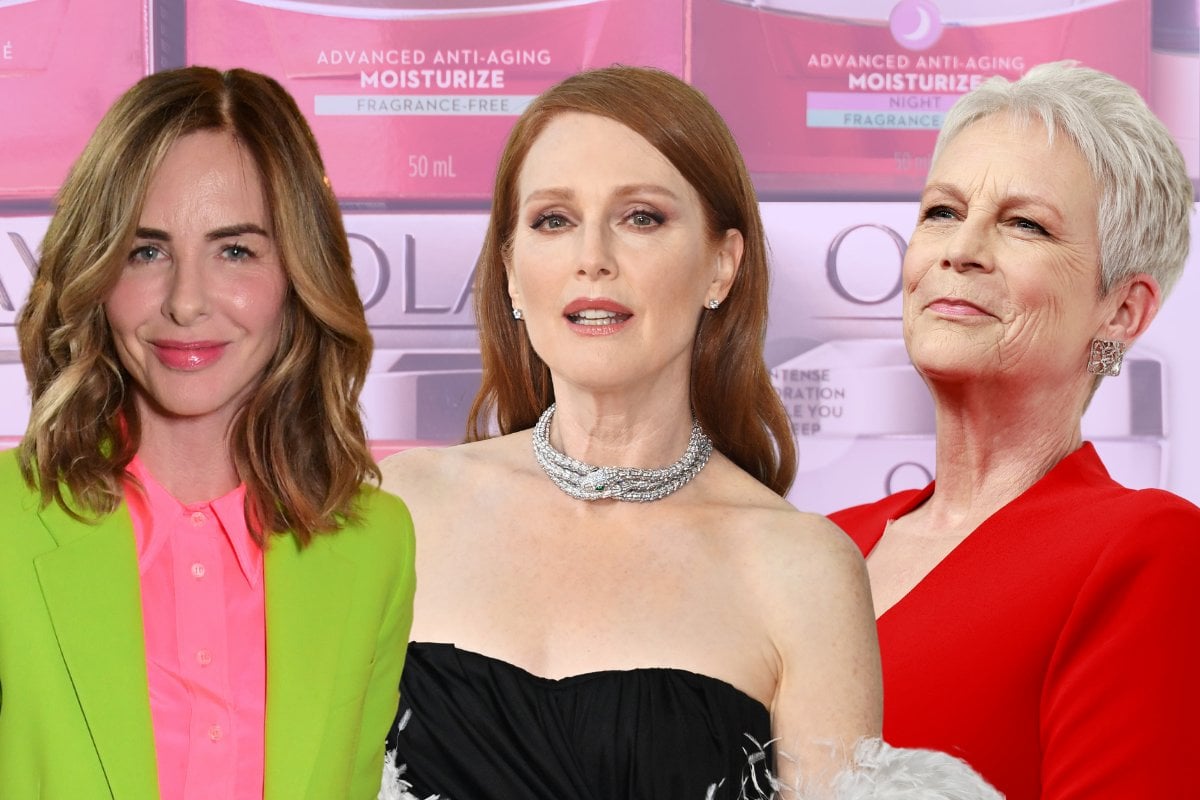
Anti-ageing. It's the beauty industry's biggest marketing success - and a term that has irrevocably changed the way we think about getting older.
Take a quick glance along beauty shelves and you're guaranteed to find a string of skincare and makeup products with the words 'anti-ageing' slapped on the front of the packaging.
And it makes sense - because there's a lot of money to be made in the business of telling people they need to stop their skin from ageing. To 'slow down' the inevitable.
In fact, recent statistics show that the global anti-ageing market is worth a whopping $71.1 billion USD in 2023 - and it's only set to keep growing. By 2030 it's predicted to grow to 120 billion USD.
Watch: Here are 7 ways to improve your skin while sleeping. Post continues below.
However, as recent movements in the beauty industry indicate, we're on the cusp of change.
The 'mid-life' beauty revolution is here, and it's something that's been bubbling under the surface for a while now.
Back in 2017, Allure Magazine shared their decision to ban the term 'anti-ageing', inspiring other brands to follow suit and embrace different language and connotations around ageing.




























































































